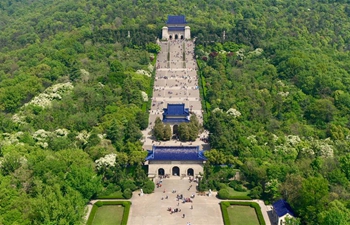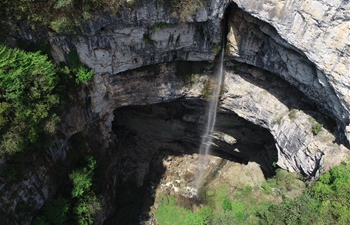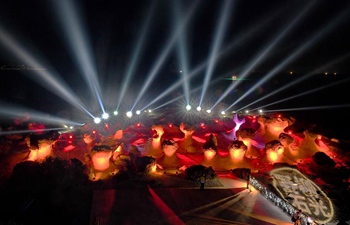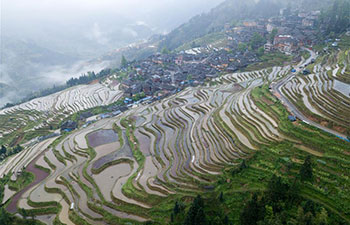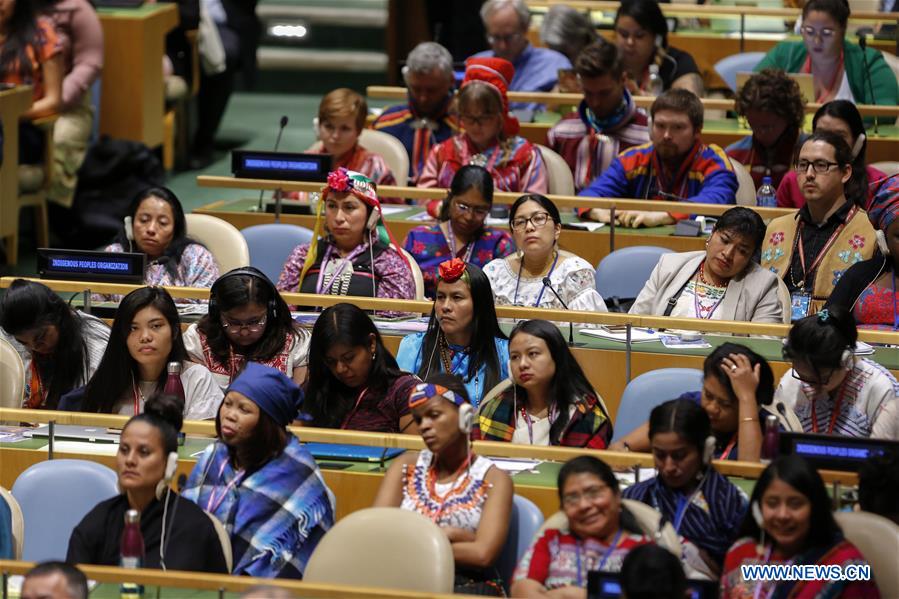
Indigenous representatives attend the eighteenth session of the United Nations Permanent Forum on Indigenous Issues (UNPFII) at the UN headquarters in New York, April 22, 2019. "Traditional knowledge is at the core of our identity, our culture, our languages, our heritage and livelihoods, and must be protected," said the newly elected chair of the eighteenth session of the United Nations Permanent Forum on Indigenous Issues (UNPFII) on Monday. (Xinhua/Li Muzi)
UNITED NATIONS, April 22 (Xinhua) -- "Traditional knowledge is at the core of our identity, our culture, our languages, our heritage and livelihoods, and must be protected," said the newly elected chair of the eighteenth session of the United Nations Permanent Forum on Indigenous Issues (UNPFII) on Monday.
Anne Nuorgam, who has been elected by acclamation in the opening ceremony of the eighteenth session of UNPFII, said in her speech that "stories, songs, dances, carvings, paintings and performances" were used by indigenous people to transmit knowledge between generations, and they have to be protected.
More than 1,000 participants of indigenous peoples from all over the world will be at the United Nations headquarters from April 22 to May 3 to participate in the UNPFII session. This year's session is focused on the generation, transmission and protection of indigenous peoples' traditional knowledge.
Global histories of colonialism, exploitation and dispossession continue to undermine and undervalue indigenous peoples' traditional knowledge, said Nuorgam, adding that the indigenous peoples' educational practices, languages, environmental conservation and management have to be acknowledged and respected globally, not only by governments, but by all peoples.
"Understanding the past and seeking reconciliation is an important part of these efforts," she said.
On the same occasion, on behalf of Under-Scretary-General for Economic and Social Affairs Liu Zhenmin, UN Statistics Division Director Stefan Schweinfest called for a change for indigenous peoples.
Indigenous cultures enrich the world's cultural diversity, and languages are fundamental for the continuation and transmission of indigenous peoples' cultures and knowledge systems. Despite their immense value, indigenous languages continue to disappear at an alarming rate, said Schweinfest.
"The loss of indigenous languages signifies the loss of traditional knowledge as well as the loss of cultural diversity," he added.
He called for teaching indigenous children in their languages and traditional ways to maintain their community cultures, saying it "reduces school drop-out rates, and leads to economic growth". "It also ensures that the linguistic diversity that is our common heritage, is strengthened and remains vibrant for our children and their children."
In addition, the executive secretary of the secretariat of the Conservation of Biodiversity Cristiana Palmer said that the transmission of traditional knowledge and culture requires access to traditional territories, rights to customary and sustainable use of nature resources and strong indigenous languages.





